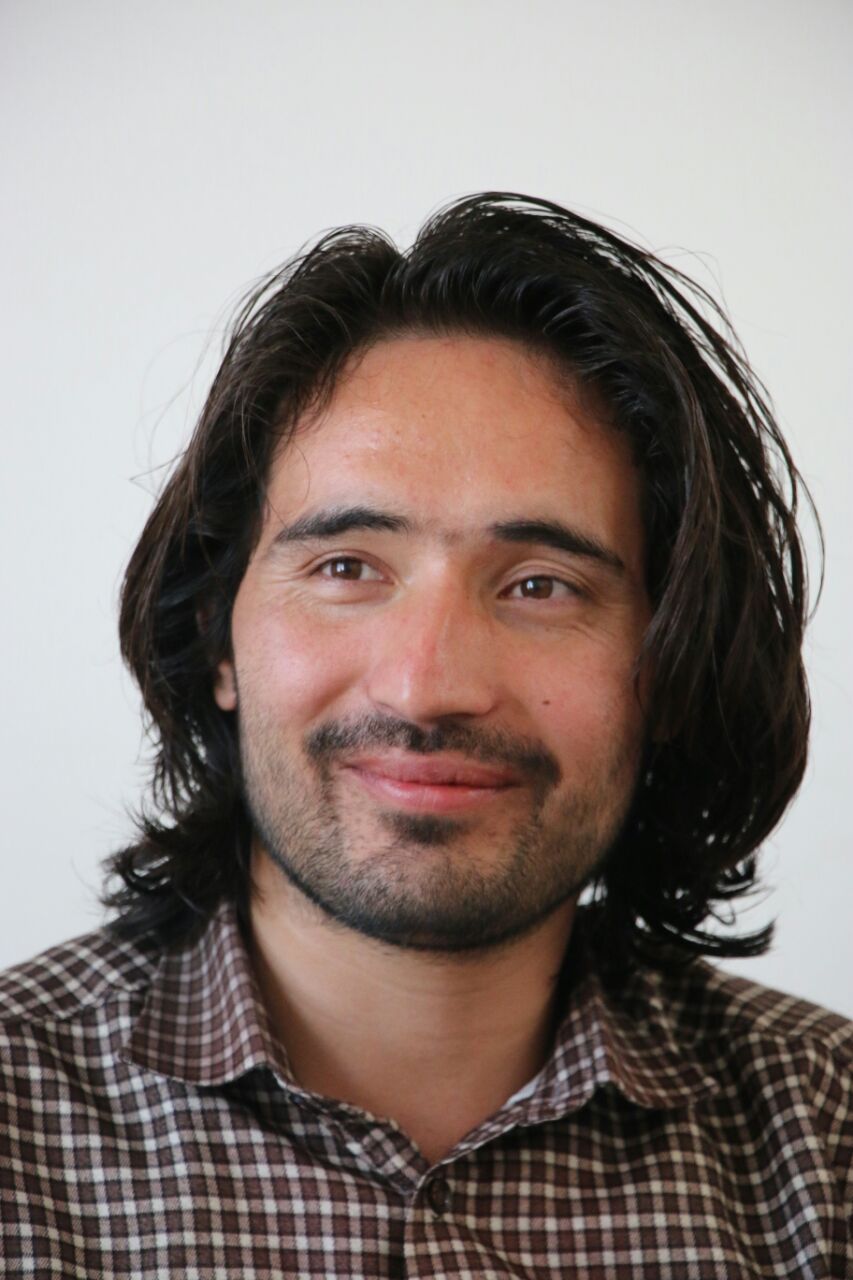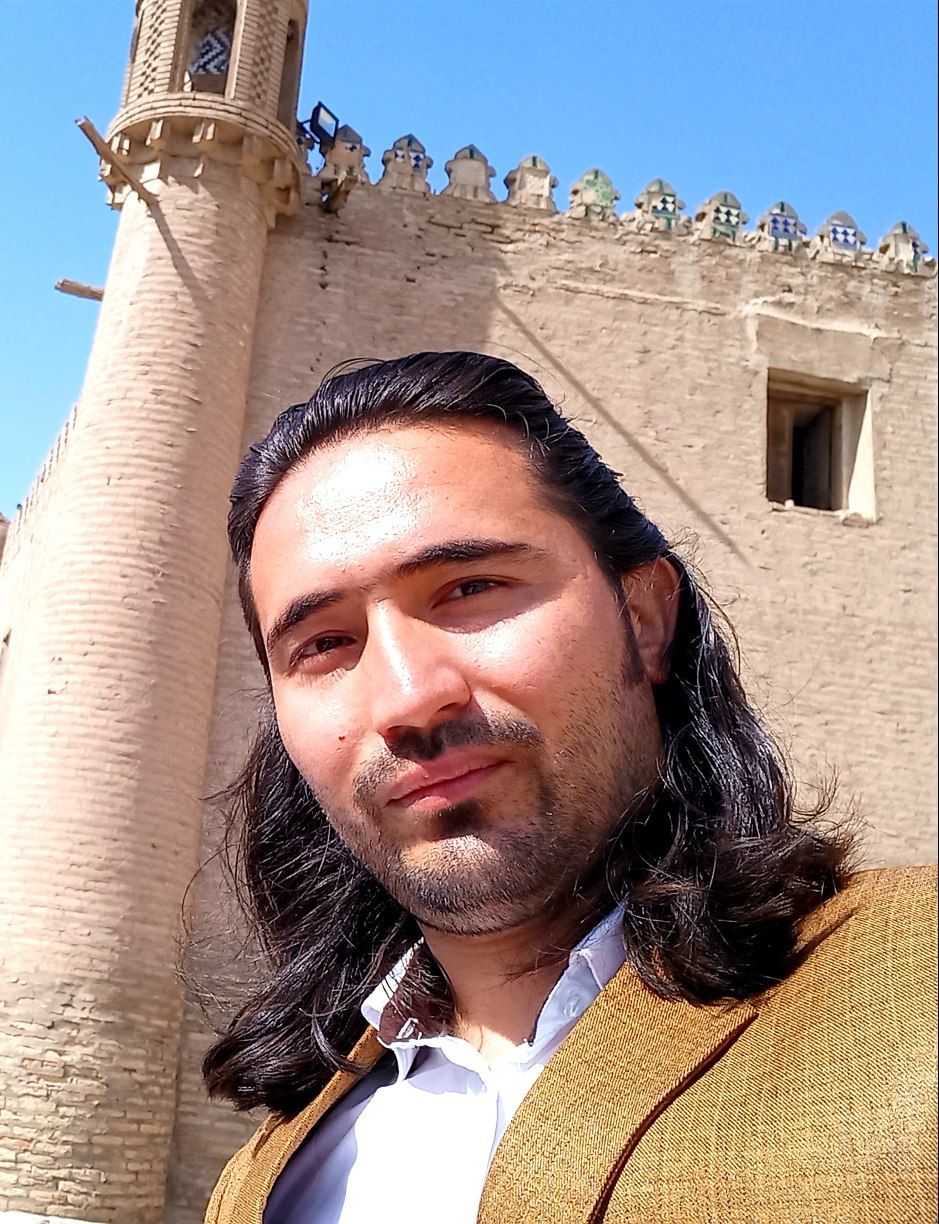Prominent poet, author, and researcher Tahmasbi Khorasani is the 15th ICORN resident in Stavanger

In the beginning of August 2025, poet, author, and researcher Tahmasbi Khorasani and his family arrived in Stavanger, where they were welcomed for Khorasani’s two-year ICORN residency. He is Stavanger City of Refuge’s 15th ICORN resident. Since arriving in Norway, Khorasani has continued working and has participated in several ICORN-related events, including the Norwegian Network Meeting, 17-19 September. He also joined the celebrations in honour of ICORN’s 20th anniversary, the 30th anniversary of the Kapittel International Festival of Literature and Free Expression, and Stavanger’s 900th anniversary.
Tahmasbi Khorasani is a prominent poet, author, and researcher from Balkh, a city located in ancient Khorasan and present-day Afghanistan. He continues in the footsteps of Zoroaster, Rumi, Abu Ali Sina Balkhi, and many other poets and scholars who once made Balch one of the most important centres of Eastern civilization.
Anne Torill Stensberg, Director of Sølvberget Library and Cultural Centre in Stavanger, said:
‘Welcoming a writer in ICORN residence gives democracy and freedom of expression a tangible meaning. The ICORN residents remind us that the right to express oneself can never be taken for granted. We look forward to getting to know Tahmasbi Khorasani from Balkh, Afghanistan and warmly welcome him to Sølvberget.’
Khorasani is the recipient of more than ten awards from domestic and foreign literary festivals. These include the first ‘Az Naistan’ literary festival in Balkh (April 2018), the fourth ‘Parsi Sugar’ festival in London (February 2019), and the ‘Yaqub Laith International Festival’ in Balochistan (January 2024). A number of events focusing Khorasani’s work and contributions have also been held, including a programme organised by PEN Afghanistan in Kabul(November 2015), the launch of Gâhân in Tehran (April 2015), and a tribute to him at the University of Delhi, organised by the Persian Foundation of India and the University of Delhi (January 2017).
Khorasani began his literary and journalistic career in 2006 and has since written for numerous national and international publications and participated in literary conferences and events, making him one of the most prominent figures in the literary scenes of Balkh and the country.
Since 2009, Khorasani has also been engaged in various roles in the literary and cultural fields. These include being the Executive Director of the Balkh Authors' Association, the Head of Hasht Behesht Publication and Literary Association, a regular contributor for and Board Member of the Simorgh Literary Weekly, a regular contributor for the Contemporary Literature Magazine, alongside teaching at private universities in Balkh. Through his work and association with publishing houses, he has facilitated the publication of dozens of titles by poets and authors.
During his active years in Balkh and Kabul, Khorasani organised dozens of literary conferences, book launches, and review circles through the Hasht Behesht Literary Association and the Balkh Authors'Association. Khorasani is the author of six books, which have been published in Afghanistan, Iran, and India, including:
- Gâhân. Poetry collection, published in 2014 by Hasht Behesht Literary Association, Balkh
- Hamsâya-e-Khodâyân (Neighbour of the Gods). Poetry collection, published in 2019 by Hasht Behesht Literary Association, Balkh
- Shahid-e-Eshq (Martyr of Love). Manuscript of Shahid-e-Marmuli's Divan, published in 2019 by Hasht Behesht Literary Association, Balkh.
- Gul-e-Zakhm (Flower wound). Excerpts from the lyric poems of Abdolhaq Bitab, published in 2019 by Taak and Amoo Publications, Kabul and Tehran.
- Bi Jehat Nistam Khorasan. Poetry collection, published in 2021 by Persian Foundation of India and Cultural Institute of Persian-Speaking Poets Publications, Delhi and Tehran.
- Ghaznavids; the Persian oriented or the Turckic essence?: Research on the identity, history, and culture of Ghaznavids. Two editions published in 2022 by Hasht Behesht Literary Association, Balkh.
-

Khorasani’s books, especially his first and second poetry collections Gâhân (similar to Gâthâ of Zoroastrianism) and Hamsâya-e-Khodâyân (Neighbour of the Gods), are considered blasphemous by the Taliban and other conservative religious groups. This is due to both the titles and themes addressed in the publications, including archaism, nativism, identityism, pride in Zoroastrianism, and references to the Pishdadi and Kayani kings of Eastern Iran, as well as condemnation of religious conservatives.
Inspired by his love for the history and culture of ancient Iran/Ariana and his cultural and historical connections to Mithraism and Zoroastrianism, Khorasani’s research focuses on the history and culture of ancient Iran and the Persian language and literature. Antiquity, nativism, identity, love, society, politics, and the fight against tyranny and religious extremism are some of the themes which can be found in both his literary work and scholarly analysis.
Through his work, Khorasani seeks to enlighten,revive, and reconstruct the historical and cultural identity of his country and its people. He hopes to raise awareness among his compatriots, helping them to understand their history and culture, which would, in turn, contribute to reduce prejudice, ignorance, war, and violence.
In addition to literary and newspaper texts, Khorasani has published more than 15 analytical, scientific and research articles in magazines and online platforms.
Due to his cultural activities and professional focus on Zoroastrian and ancient Iranian history and culture, Khorasani has been threatened throughout his career. As the Taliban’s control over regions and cities across Afghanistan increased in 2018 and 2019, so did threats against Khorasani. The persecution reached its peak in 2020 when on 3 August, the Taliban chief of the Balkh province issued a fatwa against him, forcing him to flee to a neighbouring country. After fleeing, Khorasani continued his studies towards a PhD in Persian Literature.
Stavanger ICORN City of Refuge
Stavanger was the first City of Refuge in Norway,welcoming its first ICORN resident in 1996 and becoming the host of the ICORN Secretariat in 2006 when the organisation was established. The institution which hosts the ICORN residency in Stavanger is Sølvberget Library and Cultural Centre.
In addition to Tahmasbi Khorasani, Stavanger is currently hosting Palestinian hip-hop artist, music and video producer, and graphic designer Mohammed El-Susi, who arrived in May 2024.
Stavanger has hosted 15 writers, artists, and journalists in ICORN residence. Among them are Azerbaijani poet and musician Araz Elses, Yemeni poet and activist Mansur Rajih, Iranian author, playwright and film director Mansour Koushan, Chechen writer and filmmaker Islam Elsanov,Zimbabwean novelist and poet Chenjerai Hove, Iraqi poet Otba Fathalla, Iraqi poet and journalist Selma M. Yonus, Iranian author, artist, and filmmaker Elahe Rahronia, Syrian translator, writer, and activist Mohammad Habeeb, Iranian cartoonist and illustrator Ali Dorani, Iraqi investigative journalist Safaa Khalaf, and Yemeni photojournalist and photographer Hayat Al-Sharif.



